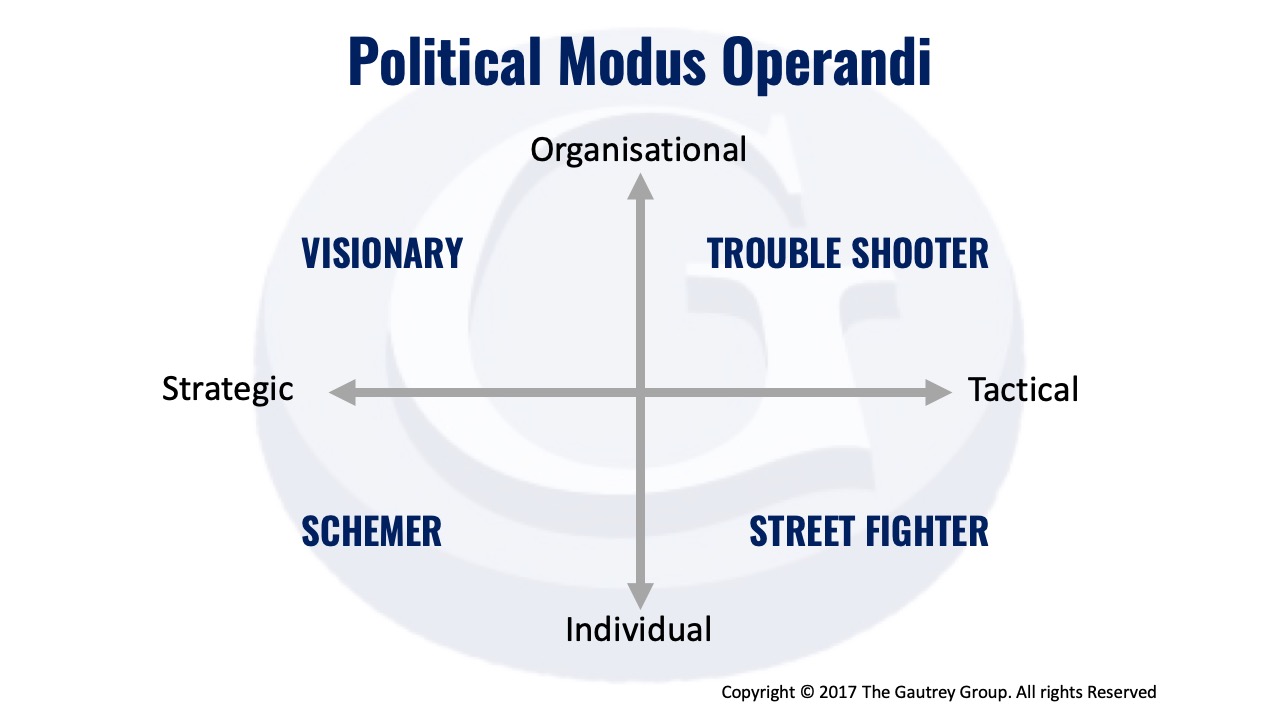Analysing the customary manner in which a stakeholder approaches organisational politics can give you insights into how they may respond to any move you make, and how you can adjust your own approach to be more effective with them.
Reflecting this back on your own Modus Operandi can also provide early warning of flash points between you and the stakeholder, or indeed, between them an other stakeholders.
All of which will enable you to be more effective at engaging and influencing in any organisation, and especially one where the politics are strong.
The Dimensions of Political Modus Operandi
Keeping it simple.
Consider each individual on a 2×2 grid with a vertical assessing the degree to which their focus in on their individual needs (at the bottom) or the organisation’s need.
On the horizontal, consider their dominate thinking approach from strategic on the left across to tactical on the right.
There is no black and white, nor clear cut distinctions. Based on what you know of them, and what you’ve heard of them, position each of your key stakeholders somewhere between the extremes on both dimensions.

The Quadrants of Political Modus Operandi
Visionary: A strategic thinker who is focused on the bigger picture and longer term for the good of the organisation.
Trouble Shooter: Someone who is looking at the here and now in a very practical way to get things done, for the good of the organisation and all who sail in her.
Schemer: Again, looking at the longer term, but this time, for selfish intent – how can they position things so they come out on top in the fullness of time?
Street Fighter: Enjoying the cut and thrust of the problems and challenges that everyone is obsessed about, and taking any opportunity to advance their own personal agenda.
The Consequences of Political Modus Operandi
Once you understand the differences, you can begin to make predictions about how:
- Different quadrants engage with each other and what you can expect to happen. For instance, when a Visionary meets a Schemer, mutual and extreme dislike will become evident.
- Different players within a quadrant will engage. For instance, when two Street Fighters meet, it will either get very ugly or they’ll band together – then everyone else needs to watch out.
- Values will vary and what that could mean for the approach you take to influence them.
- You own Modus Operandi is affecting those around you. Being aware of what they can see and thus watching out for how they may react to you.
- The high-level strategy (or vision) of the organisation favours different MOs and what you can do to position yourself in a favourable way.
Right now, I challenge you to think about the quadrants and your stakeholders, and develop your awareness of how this plays out in different meetings you attend.

